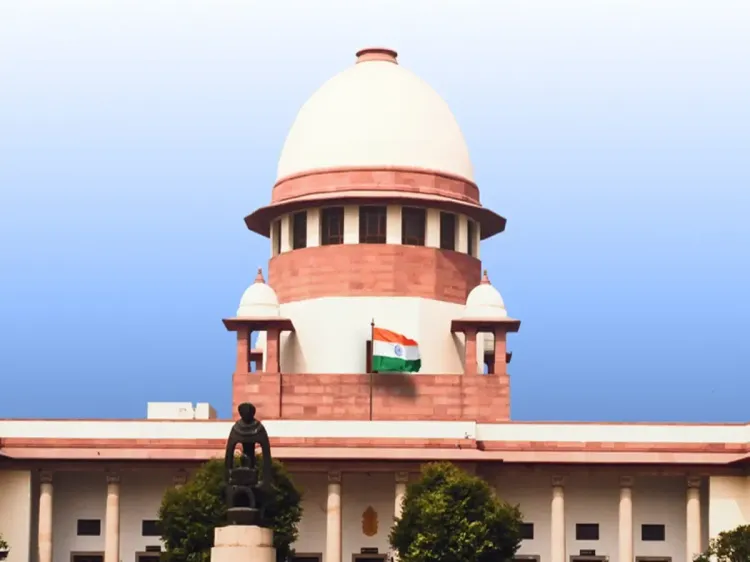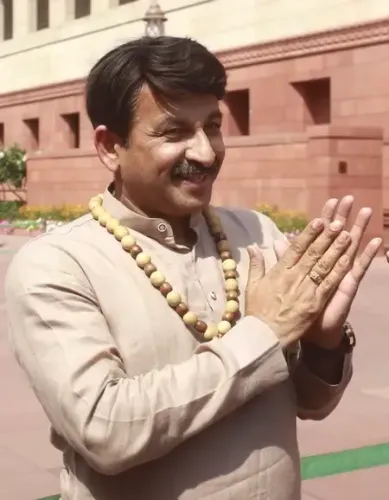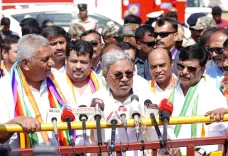Is 'Deemed Assent' Opposed to the Constitution? SC on Presidential Reference

Synopsis
Key Takeaways
- The Supreme Court ruled against imposing timelines on Governors or Presidents for Bill assent.
- The concept of deemed assent is viewed as contrary to the Constitution.
- The Constitution allows Governors three clear options regarding Bills.
- Judicial timelines could undermine constitutional authority.
- Governors cannot indefinitely delay Bill assent.
New Delhi, Nov 20 (NationPress) The Supreme Court, on Thursday, emphasized that judicial bodies cannot impose deadlines on the Governor or the President concerning the granting of assent to Bills. The notion of “deemed assent”, brought up earlier this year in the Tamil Nadu Bills matter, is deemed “antithetical to the spirit of the Constitution” and undermines the principle of separation of powers.
A Constitution Bench led by Chief Justice of India B.R. Gavai addressed the Presidential reference following the Tamil Nadu Bills ruling. The Bench noted that enforcing a timeline would contradict the constitutional “elasticity” intricately designed within Articles 200 and 201. Any judiciary effort to impose time constraints would effectively “supplant the authority of another constitutional organ”.
“Such an imposition would be in direct conflict with the elasticity that the Constitution meticulously ensures. The concept of deemed assent is an encroachment on the powers of another authority, and Article 142 cannot be employed for such purposes,” stated the five-judge Bench, which included Justices Surya Kant, Vikram Nath, P.S. Narasimha, and Atul S. Chandurkar.
The apex court reiterated that while the execution of the Governor’s responsibilities under Article 200 is not subject to judicial review, constitutional courts may issue a limited mandamus, urging the Governor to act under Article 200 within a reasonable timeframe, without delving into the merits of discretion.
The court maintained that Governors cannot indefinitely delay assent to Bills passed by state legislatures, asserting that the Constitution provides three distinct “clear options”: to grant assent, return the Bill to the legislature with comments, or refer it to the President.
“We assert that the Governor lacks the authority to simply withhold. The three explicit options available to him are to grant assent, return the Bill to the legislature with comments, or refer it to the President. He can exercise discretion among these three choices,” remarked Chief Justice Gavai’s Bench.
“The elected government, the Cabinet, must hold the reins of power, and there cannot be dual centers of executive authority,” the apex court concluded, dismissing the Centre’s claims that Article 200 grants unlimited discretion to the Governor.
This opinion from the Constitution Bench contrasts with a previous judgment from a two-judge Bench earlier this year, which, invoking Article 142, classified ten Bills in Tamil Nadu as deemed to have received assent after a significant delay by Governor R.N. Ravi and established a three-month deadline for gubernatorial and presidential decisions.









